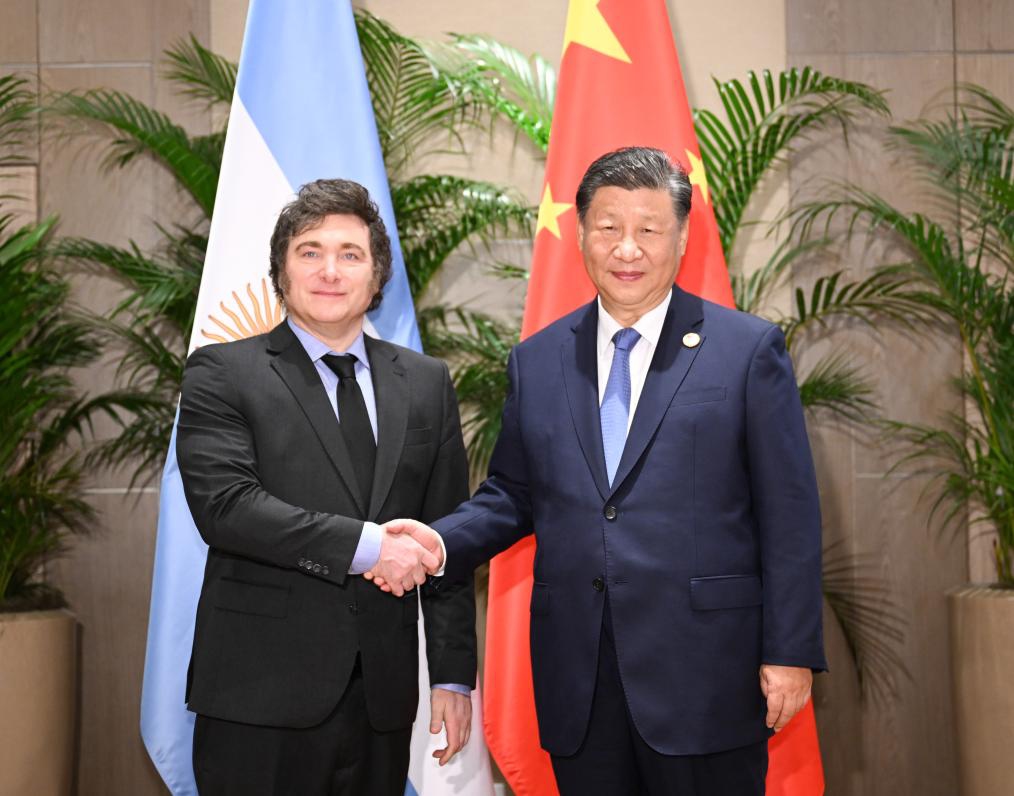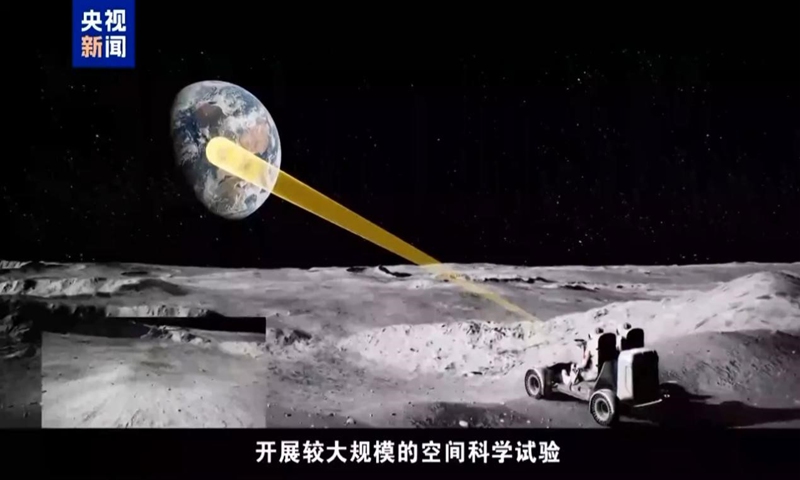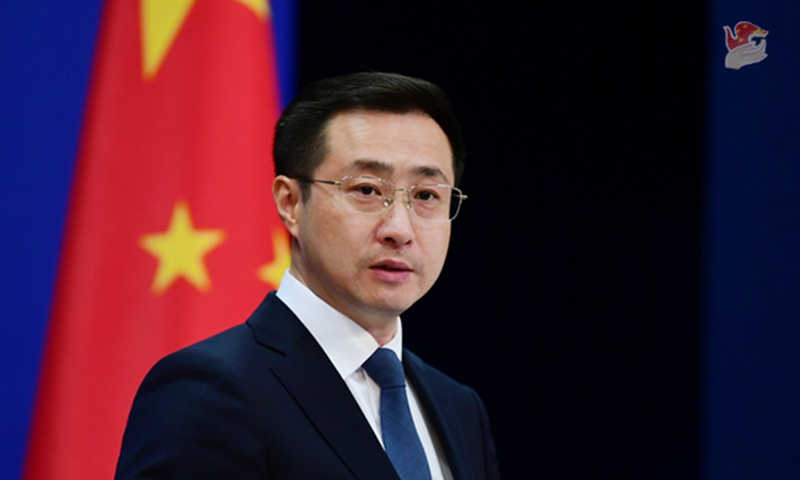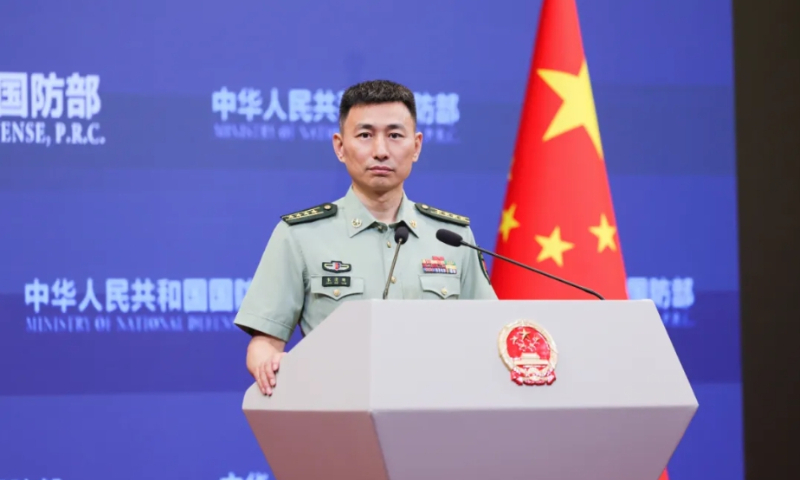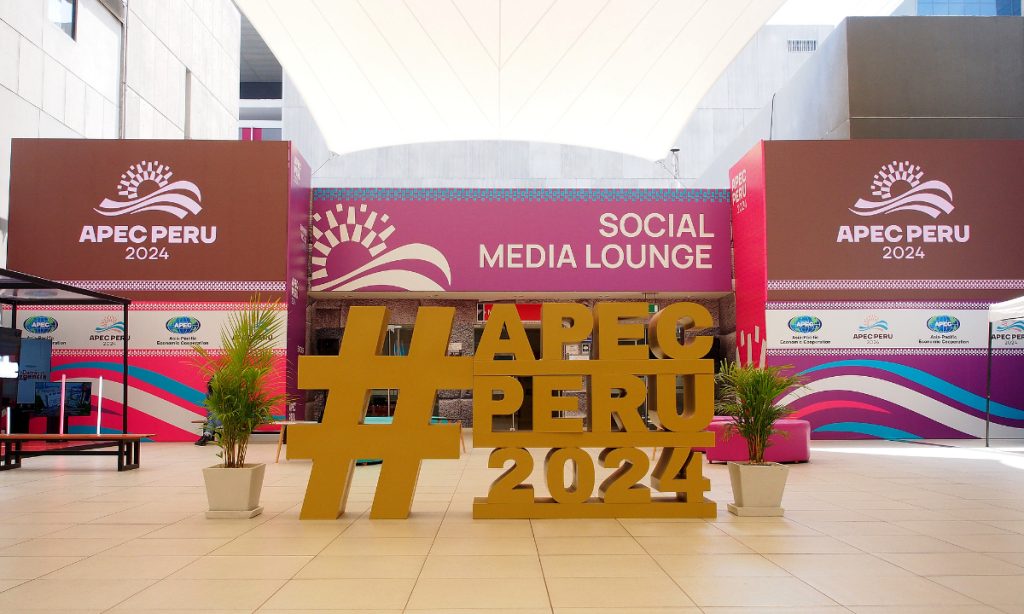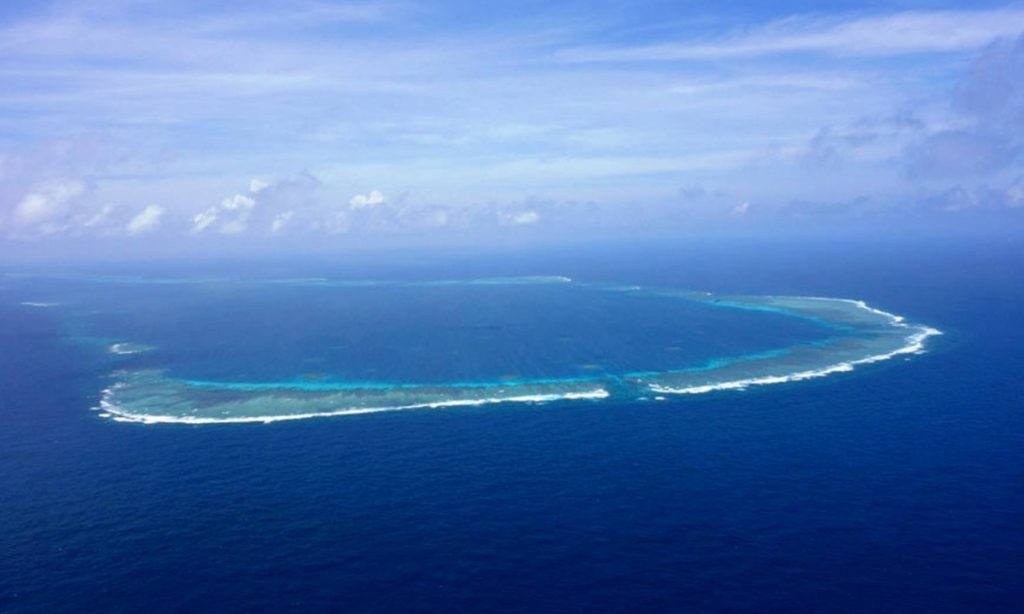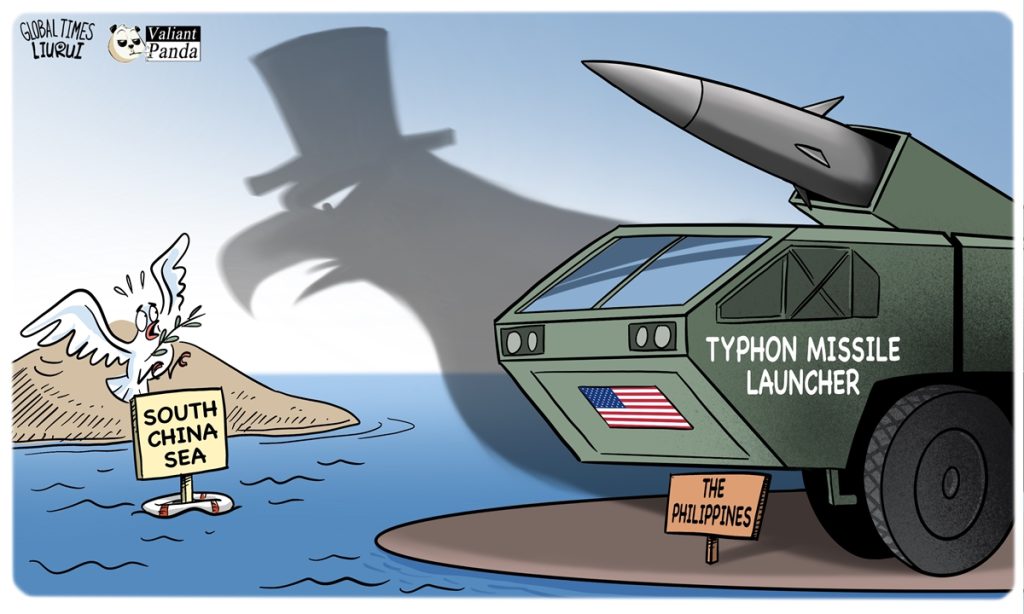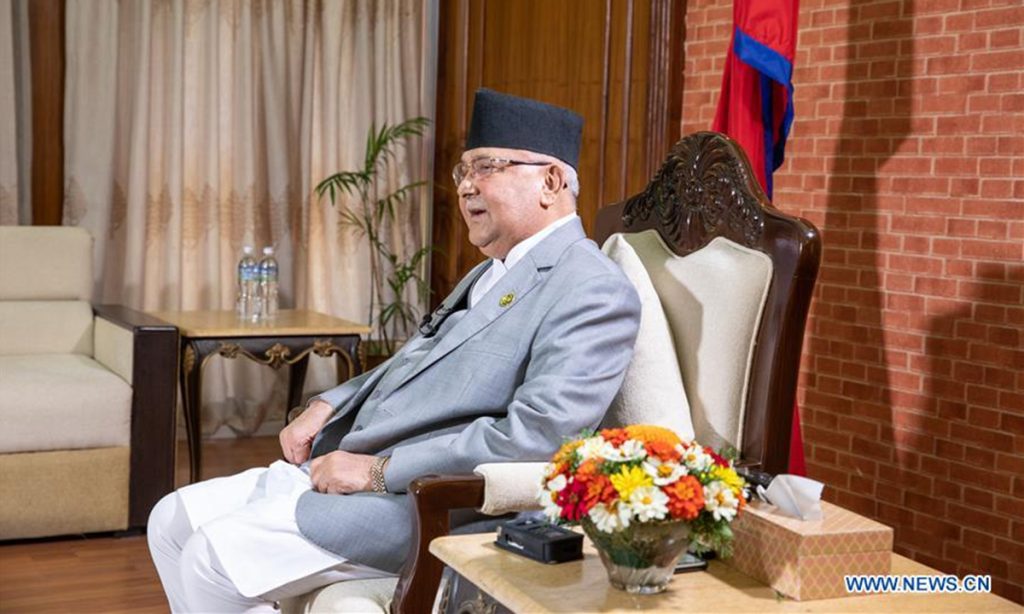Xi says AI should not be a game of the rich countries and the wealthy
Chinese President Xi Jinping on Monday called for stepping up international governance and cooperation on artificial intelligence (AI), to make sure that AI is for good and for all, not a game of the rich countries and the wealthy.
Xi made the remarks at Session II of the 19th G20 Summit on Reform of the Institutions of Global Governance.
Xi calls for building a world economy characterized by cooperation
Chinese President Xi Jinping on Monday called for improving global economic governance and building a world economy characterized by cooperation.
Xi made the remarks at Session II of the 19th G20 Summit on Reform of the Institutions of Global Governance.
As main creditors, international financial institutions and commercial creditors need to take part in debt reduction and suspension for developing countries, he said.
Xi calls for building a world economy characterized by stability
Chinese President Xi Jinping on Monday called for improving global financial governance and building a world economy characterized by stability.
Xi made the remarks at Session II of the 19th G20 Summit on Reform of the Institutions of Global Governance.
Joint efforts are needed to keep the international financial market stable and prevent negative spillover of domestic monetary policy adjustments, and developed countries should fulfill their responsibilities in this regard, he said.
Xi calls for building a world economy characterized by openness
Chinese President Xi Jinping on Monday called for building a world economy characterized by openness.
"We need to improve global trade governance and build a world economy characterized by openness," Xi said when addressing Session II of the 19th G20 Summit held in Rio de Janeiro, Brazil.
"We should press ahead with reforming the World Trade Organization (WTO), oppose unilateralism and protectionism, restore the normal functioning of the dispute settlement mechanism as soon as possible, include the Investment Facilitation for Development Agreement into the WTO legal framework, and reach early consensus on the e-commerce agreement," he added.
Xi said that it is important to "avoid politicizing economic issues, avoid fragmenting the global market, and avoid taking protectionist moves in the name of green and low-carbon development."
Xi calls for building a world economy characterized by innovation
Chinese President Xi Jinping on Monday called for improving global digital governance and building a world economy characterized by innovation.
He called for stepping up international governance and cooperation on artificial intelligence (AI), to make sure that AI is for good and for all, not a game of the rich countries and the wealthy.
Xi made the remarks at Session II of the 19th G20 Summit on Reform of the Institutions of Global Governance.
Xi calls for building a world economy characterized by eco-friendliness
Chinese President Xi Jinping on Monday called for improving global ecological governance and building a world economy characterized by eco-friendliness.
He called for expediting the green and low-carbon transition of the world economy.
"Energy transition and energy security is a major issue. We should follow the approach of 'establishing the new before abolishing the old,' and replace traditional energy with clean energy in a stable and well-ordered way," Xi said when addressing Session II of the 19th G20 Summit on Reform of the Institutions of Global Governance.
Xi calls for expediting green, low-carbon transition of world economy
Chinese President Xi Jinping on Monday called for expediting the green and low-carbon transition of the world economy.
"Energy transition and energy security is a major issue. We should follow the approach of 'establishing the new before abolishing the old,' and replace traditional energy with clean energy in a stable and well-ordered way," Xi said when addressing the Session II of the 19th G20 Summit held in Rio de Janeiro, Brazil.
Xi calls on G20 to support UN and its Security Council in playing greater role, support all efforts conducive to peaceful settlement of crises
Xi calls for improving global trade governance, restoring normal functioning of dispute settlement mechanism
Chinese President Xi Jinping on Monday called for improving global trade governance and restoring normal functioning of dispute settlement mechanism as soon as possible.
"We should press ahead with reforming the World Trade Organization, oppose unilateralism and protectionism, restore the normal functioning of the dispute settlement mechanism as soon as possible," Xi said when addressing the Session II of the 19th G20 Summit held in Rio de Janeiro, Brazil.
Xi calls for de-escalating Ukraine crisis, seeking political settlement
Chinese President Xi Jinping on Monday called for de-escalating the Ukraine crisis and seeking a political settlement.
"To deescalate the Ukraine crisis and seek a political settlement, we should follow the principles of no expansion of the battlefields, no escalation of hostilities and no fanning flames," Xi said when addressing the Session II of the 19th G20 Summit held in Rio de Janeiro, Brazil.
G20 members should see each other's development as opportunities rather than challenges -- Xi
Chinese President Xi Jinping said on Monday that G20 members should keep in mind that mankind lives in a community with a shared future, see each other's development as opportunities rather than challenges, and view each other as partners rather than rivals.
Xi stresses urgency to stop fighting in Palestinian-Israeli conflict
Chinese President Xi Jinping said on Monday that it is urgent for all sides in the Palestinian-Israeli conflict to stop fighting and end the war.
"The fighting in Gaza has inflicted deep suffering on the people. It is urgent for all sides to stop fighting, end the war, and provide support for easing the humanitarian crisis in the region and for postwar reconstruction," Xi said when addressing the Session II of the 19th G20 Summit held in Rio de Janeiro, Brazil.
"The fundamental way out of the cycle of Palestinian-Israeli conflict lies in the implementation of the two-State solution, the restoration of Palestine's legitimate national rights, and the establishment of an independent State of Palestine," he added.
Xi calls for reaching early consensus on e-commerce agreement
Chinese President Xi Jinping on Monday called for reaching early consensus on the e-commerce agreement.
Xi warns against politicizing economic issues, fragmenting global market
Chinese President Xi Jinping said Monday that it is important to "avoid politicizing economic issues, avoid fragmenting the global market, and avoid taking protectionist moves in the name of green and low-carbon development."
Int'l financial institutions, commercial creditors need to take part in debt reduction, suspension for developing countries -- Xi
Chinese President Xi Jinping said on Monday that as main creditors, international financial institutions and commercial creditors need to take part in debt reduction and suspension for developing countries.
Developed countries should prevent negative spillover of domestic monetary policy adjustments -- Xi
Chinese President Xi Jinping said on Monday that joint efforts are needed to keep the international financial market stable and prevent negative spillover of domestic monetary policy adjustments, and developed countries should fulfill their responsibilities in this regard.
